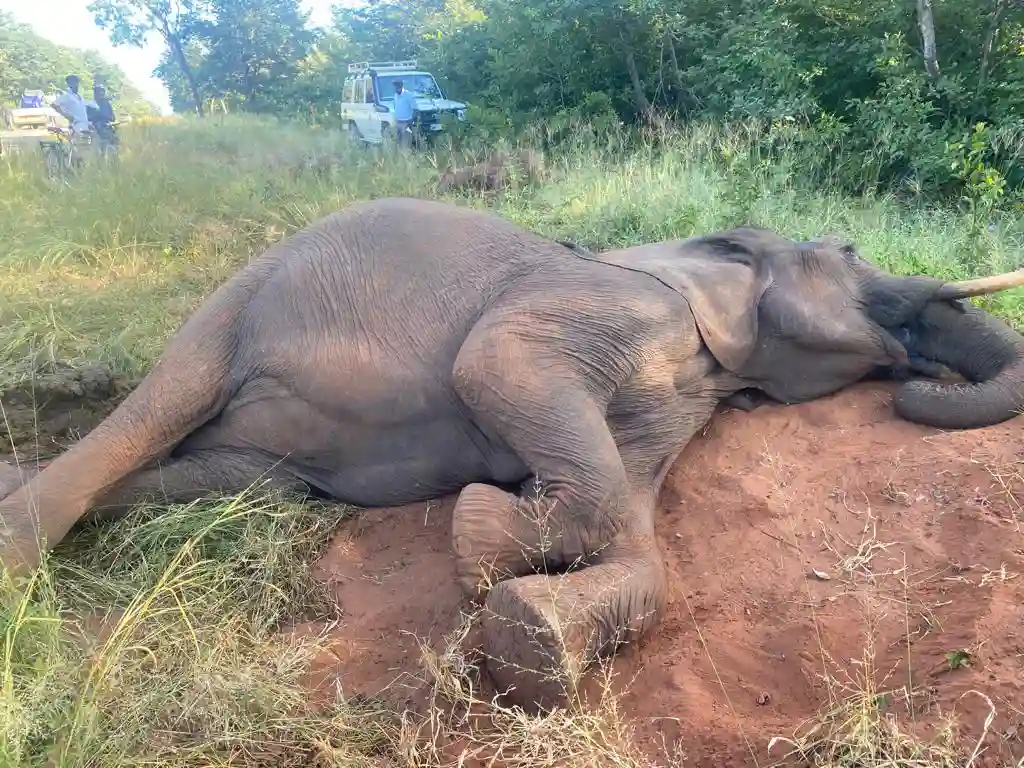Six adult elephants were allegedly killed by poisoning before their tusks were removed by suspected poachers last week at a watering hole at Gwayi, Shangani Wildlife Conservancy, which is close to Hwange National Park.
Zimbabwe Parks and Wildlife Management Authority (ZimParks) spokesperson, Tinashe Farawo confirmed the deaths of the elephants to CITE, adding investigations were still ongoing to establish the cause of the deaths. He said:
We have an incident where six elephants were found dead in Gwayi/Shangani area but we cannot ascertain the cause of the death because the elephants were found in a decomposing state.
Our veterinary doctors are investigating the cause but at the moment we do not know what happened so we can’t say it’s poisoning because we can’t confirm that.
CITE reported wildlife sources in that area as saying the animals were killed by cyanide that was sprinkled in one of the water sources.
A local wildlife conservationist who requested anonymity due to the sensitivity of the matter was quoted as saying:
We strongly suspect that the bull elephants were poisoned using cyanide. Their decomposing carcasses were found about 100 to 300 metres apart along a pathway which the animals usually use when going to drink water.
Another factor which suggests the elephants might have succumbed to poison is there were no animal scavengers or even maggots at the sight.
The wildlife conservationist said the elephants had all been dehorned, suggesting that the jumbos were killed by poachers for their tusks.
Last week Farawo told the Southern Eye that poaching had been on a decline, with no cases recorded in 2023 at the game park.
He also revealed that a total of 36 wildlife animals were poached in 2022, down from 42 in 2021.
From 2016 to 2019, at least 322 elephants were killed by poachers, largely for their tusks, Farawo explained.
More: Pindula News

